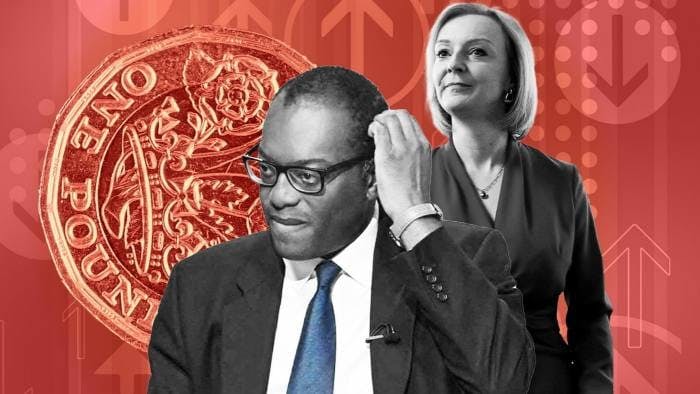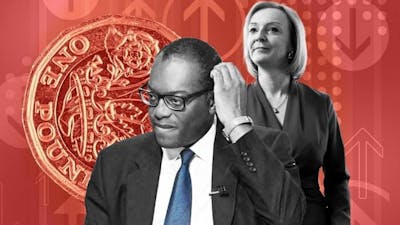Line Go Down: Bristol Transformed talks Economics (19/10/22) - Jargon cheat sheet and further reading
JJ
Tuesday, 18th October, 2022
Economics Jargon Cheat Sheet:
Inflation: The average increase in prices in an economy, typically measured as a percentage increase year on year. The Consumer Price Index (CPI) and Retail Price Index (RPI) are two measures of inflation, comparing a defined set of goods and services from one year to the next. An 8% increase in the CPI means the same set of goods and services costs 8% more than the same time last year.
Interest Rate - an amount charged to a borrower by a lender, usually expressed as a percentage per year. E.g. 4% interest on a £100 loan is £4 per year.
Bank Rate - Also known as the “Bank of England Base Rate”, this is the interest charged to commercial banks by the Bank of England (the interest the BoE pays on the deposits commercial banks hold in its account), which influences the interest rates that banks charge on mortgages and loans.
Fiscal & monetary policy - Fiscal policy concerns Government spending and taxation
Monetary policy - Monetary Policy concerns the supply of money and is set by the Bank of England. For example, the Bank of England Base Rate (see above) is set by the BoE’s Monetary Policy Committee.
Bond - Selling a bond is a way to borrow money, and is paid back in full at a fixed date, with an agreed rate of interest paid throughout. E.g. buying a £100 government bond effectively lends £100 to the government, which they pay back in full at “maturity” with interest paid throughout the life of the bond.
Gilts - Gilts are simply UK Government bonds, which are also known as “Gilt-Edged Securities”, in reference to the fact that the UK Government has never failed to pay back the interest or value of the bond, and are therefore considered a low-risk investment.
US Treasuries - These are US Government bonds, the US equivalent of Gilts.
GDP / Growth - Gross Domestic Product is a measure of all of the output of goods and services in a country in a year. It is quite a crude measure, as it does not account for human need, and considers each £ of spending to be equal, no matter what it's spent on.
Liquidity - How easy it is to convert an asset into cash or use it as a form of money to pay for debts, goods or services. The liquidity of assets can change based on their utility, how much they yield, etc. Gilts are usually considered quite a ‘liquid’ asset, as many banks and pension funds use them as collateral and so they are in high demand. However, if the BoE raises rates in expectation of inflation, the liquidity of gilts falls due to them becoming a less desirable asset to hold as inflation will reduce the ‘real’ pay-out from the bond at the end of the term and new gilts will be issued by the Treasury with higher rates.
Liability-Driven Investments - An investment strategy to ensure that an investor, such as a pension fund, has sufficient income generated from assets to match future liabilities. Amounts payable on liabilities may fluctuate depending on things like changes to the interest rates or changes in the exchange rate if liabilities are denominated in a foreign currency. As such, financial instruments like swaps are needed to ensure that if the amounts payable for liabilities increase in the future the income generated from assets also increases proportionately.
Asset: Something that generated revenue for a business. This could be a piece of machinery to make products or a loan to another company (or government) that generates interest, or bills that have been paid in advance.
Liability: Something that costs a business money e.g. lease on a property for operations, a loan borrowed from a bank, or bills paid in arrears.
Capital: Retained Earnings + Shareholder Equity
Assets + Liabilities = Capital
Further Reading Resources:
Speaker Professor Daniela Gabor in The Guardian: This economic chaos is a form of class war on the British public (6/10/22)
https://www.theguardian.com/commentisfree/2022/oct/06/economic-chaos-class-war-british-liz-truss
Speaker Dr Jennifer Churchill’s blog on pension funds and liquidity spirals (29/9/22) https://criticalfinance.org/2022/09/29/pension-funds-and-liquidity-spirals/
Speaker Dr Jo Michell in Tribune: What Should the Left Think About Tax? (29/9/20) https://tribunemag.co.uk/2020/09/what-should-the-left-think-about-tax
Chair Rae Deer in Tribune: One Tax Cut U-Turn is Not Enough (4/10/22)
Decent living for all does not have to cost the Earth (1/10/20) - A paper on the costs of environmentalism mentioned at the end of the meeting





